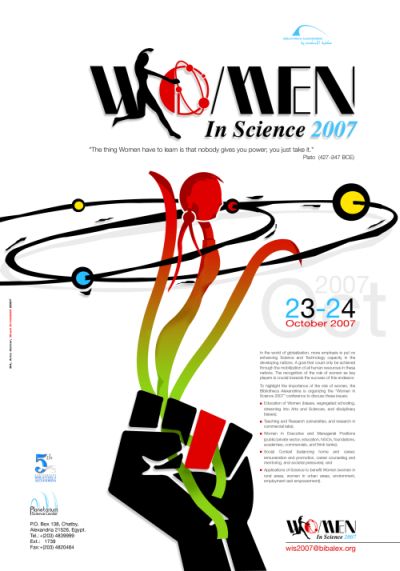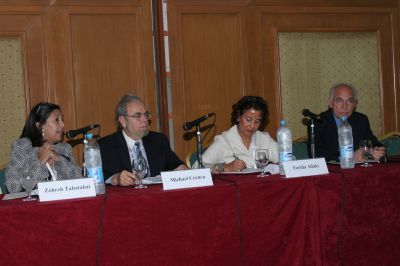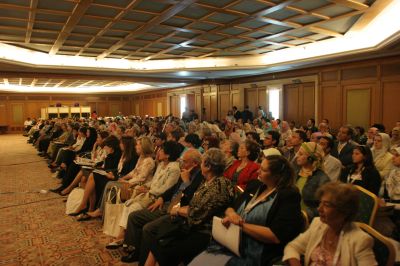23 October 2007

"The thing women have to learn is that nobody gives you power; you just take it." Plato (427-347 BCE)
"If women are expected to do the same work as men, we must teach them the same things." John W. Gardner (1912-2002)
In the world of globalization, more emphasis is being put on enhancing Science and Technology capacity in the developing nations. A goal that could only be achieved through the mobilization of all human resources in these nations. The recognition of the role of women as key players is crucial towards the success of this endeavor.
Women are a great human resource any country has, and the role of women in society is critical for development. Women have a greater influence on the next generation, they set the standards for health and hygiene and they form the majority of the agricultural labor force. To educate women is to educate the next generation. Girls should be encouraged to study scientific subjects, not just to pursue a scientific or technological career, but also to be able to apply scientific concepts in their daily lives. Studying scientific subjects should not only be seen as a vocation but as a means to develop the scientific and technological culture necessary for development. Providing encouragement and opportunity for girls and women in science and engineering is a necessity for enhancing science and technology capacity in developing countries.
The role of women in the production and sharing of knowledge that contributes to improving people's economic status and quality of life has been limited. Furthermore, the contribution of outstanding women in scientific research has not been fully recognized. This lack of recognition has resulted in inequity of access by women to the research professions. The further lack of prominent women scientists as role models has hampered both the public understanding of Science, Engineering, and Technology, and the participation of women at all levels of science.
As women they face social and institutional barriers to getting to the top of the scientific career and as a result they do not have equal chances to contribute to shaping research priorities. These barriers stem from the traditional roles and stereotypically perceived qualities of men and women. The traditional division of roles and labor, both outside and inside the family has witnessed only a minor change. Many women, as well as men, scientists are faced with the consequences of isolation and exclusion from scientific developments, resulting in a lack of networking, required skills and self-confidence necessary for participation in international research projects. As long as women are facing marginalization or even discrimination, there is work to be done.
To highlight the importance of the role of women, the Bibliotheca Alexandrina celebrated its fifth anniversary by organizing the “Women in Science” conference that took place 23-24 October 2007. The Library invited eminent persons and practicing scientists from all over the world to discuss various pertinent and pressing issues, namely:
• Education of Women (biases, segregated schooling, streaming into Arts and Sciences, and disciplinary biases);
• Teaching and Research (universities, and research in commercial labs);
• Women in Executive and Managerial Positions (public/private sector, education, NGOs, foundations, academies, commercials, and think tanks);
• Social Context (balancing home and career, remuneration and promotion, career counseling and mentoring, and societal pressures); and
• Applications of Science to benefit Women (women in rural areas, women in urban areas, environment, employment and empowerment).




For more information, please visit the conference official website:
www.bibalex.org/wis2007